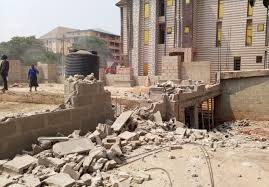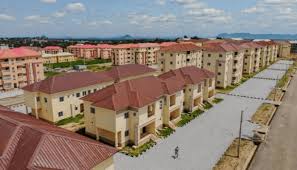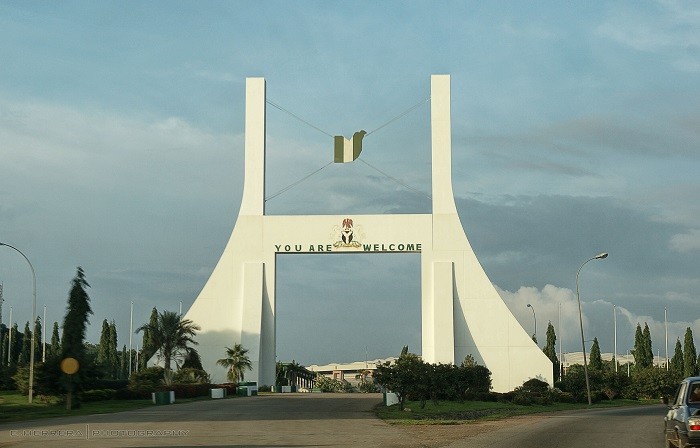
Nigeria’s 2025 Real Estate Horizon: Fakanlu Forecasts Tech-Driven Growth Amid Systemic Challenges
By Oche Onum
Lagos, Nigeria As Nigeria’s real estate sector braces for 2025, rapid urbanization, technological disruption, and a pressing housing deficit are colliding with economic volatility and bureaucratic hurdles, creating a landscape ripe with opportunity yet fraught with risk. In an exclusive interview with The Guardian, Oluwabusuyi Adonis Fakanlu, CEO of Comfort Architectural Finishing Limited, dissected the forces shaping the industry’s future, urging stakeholders to embrace innovation while tackling entrenched challenges head-on.
Economic Shifts and Urban Demand Set the Stage
Fakanlu identifies Nigeria’s economic stability and regulatory reforms as pivotal to unlocking investor confidence in the coming year. With urbanization accelerating at 4.3% annually and a housing deficit exceeding 20 million units, demand for affordable housing remains acute. “Population growth isn’t slowing, and neither is the need for accessible housing,” Fakanlu notes. “The gap between supply and demand is a crisis but also a catalyst for innovation.”
Government policies, particularly land reforms and tax incentives will shape market dynamics. However, Fakanlu warns that inflation, currency instability, and global economic headwinds could inflate construction costs, threatening affordability.
PropTech and Sustainability: The New Frontier
The sector’s transformation is being turbocharged by property technology (PropTech), with blockchain transactions, AI-driven market analytics, and digital platforms revolutionizing transparency and efficiency. “PropTech isn’t a buzzword—it’s a lifeline,” Fakanlu asserts. “Smart housing solutions and virtual tours are redefining buyer engagement.”
Parallelly, green housing initiatives are gaining traction. Energy-efficient designs and solar-powered projects are no longer niche, driven by investor appetite for ESG compliance and consumer demand for cost-saving utilities. Fakanlu highlights his firm’s push for low-carbon materials, stressing that “sustainability is now a market differentiator.”
Infrastructure Gaps and Foreign Investment: A Double-Edged Sword
While infrastructure expansion particularly road networks and electricity grids is critical to unlocking peri-urban development, Fakanlu cautions that progress remains uneven. “Inconsistent power supply and poor transport links stifle growth,” he says. Foreign investment, though vital, hinges on political stability. Recent security concerns and regulatory ambiguities, he admits, could deter international capital.
Bureaucracy and Affordability: The Roadblocks
Land acquisition delays and permit bottlenecks continue to plague developers. “Approvals that should take weeks drag for years,” Fakanlu laments. Meanwhile, Nigeria’s affordability crisis persists, with only 10% of households able to secure mortgages. He calls for public-private partnerships (PPPs) to scale modular housing and rent-to-own schemes, alongside flexible financing from banks.
Investor Playbook: Adapt, Collaborate, and Localize
For developers eyeing 2025, Fakanlu advises a hyper-localized strategy. “Understand community needs—what works in Lagos may fail in Kano,” he says. Mixed-use developments and logistics hubs near ports and airports are poised to thrive, while retail and hospitality sectors rebound as disposable incomes grow.
Crucially, he underscores collaboration: “Developers, policymakers, and financiers must align. Without PPPs and regulatory clarity, even the best projects stall.”
The Path Forward
Despite challenges, Fakanlu remains bullish. “The demand is undeniable, and the solutions are within reach,” he says, pointing to Lagos’s $1.5 billion Lekki-Epe corridor and Abuja’s smart city initiatives as blueprints. Yet success, he insists, demands systemic reforms: streamlined permits, land titling digitization, and incentives for green building.
As Nigeria’s population surges toward 230 million, the real estate sector stands at a crossroads. Balancing innovation with inclusivity, and ambition with pragmatism, will determine whether 2025 becomes a watershed year or a missed opportunity.
Similar Topics
The Federal Government has expanded the Abuja-Kaduna-Kano Road project to incorporate a direct...
a day ago Read MoreThe Federal Capital Territory Administration (FCTA) has taken possession of Wadata Plaza, the...
9 days ago Read MoreDefaulters on FCT ground rent now have 14 days grace to pay up what they owe the FCT Administration...
9 days ago Read MoreUnprofessional practices by estate agents in major cities are significantly influencing the spike...
24 days ago Read MoreA Real estate development firm, Lifecard International Investment Company, has revealed that many...
a month ago Read MoreDespite a fall in investment volumes from the 2021 peak, there is an ongoing desire for property...
a month ago Read MoreThe Lagos State government has advised the leadership of the Nigerian Institution of Estate...
a month ago Read MoreReal estate market dynamics such as construction cost, land, finance, government policies and taxes...
a month ago Read MoreEvent Set to Celebrate Managers Who Shape Careers and Drive Organizational Growth Business...
2 months ago Read MoreGlobal Leaders to Converge in Lagos for Landmark Event Driving Urban Innovation and...
2 months ago Read MoreIn a bold move to redefine affordable luxury housing, Nigerian real estate giant Gtext Holdings has...
2 months ago Read MoreIndustry Experts Urge Anti-Corruption Measures, Innovative Financing to Address Crisis By: Oche...
3 months ago Read MoreLAGOS, NIGERIA – Global real estate consultancy Knight Frank and UK developer Mount Anvil...
3 months ago Read MoreBy Oche Onum Lagos, Nigeria As Nigeria’s real estate sector braces for 2025, rapid...
3 months ago Read MoreBy Oche Onum Abuja, Nigeria In a landmark move to combat climate vulnerabilities in urban...
3 months ago Read MoreLAGOS, NIGERIA The Federal Government announced plans Wednesday to establish a Real Estate...
3 months ago Read MoreAccording to The Guardian's investigation, 70% of Nigerian states rely on manual land...
3 months ago Read MoreWhat is the Initiative? The Federal Government of Nigeria has unveiled an N100 billion private...
3 months ago Read MoreAbuja, Nigeria’s gleaming administrative capital, has long symbolized hope for migrants...
3 months ago Read MoreAbuja, Nigeria The Federal Housing Authority (FHA) has suspended all ongoing construction projects...
4 months ago Read More













